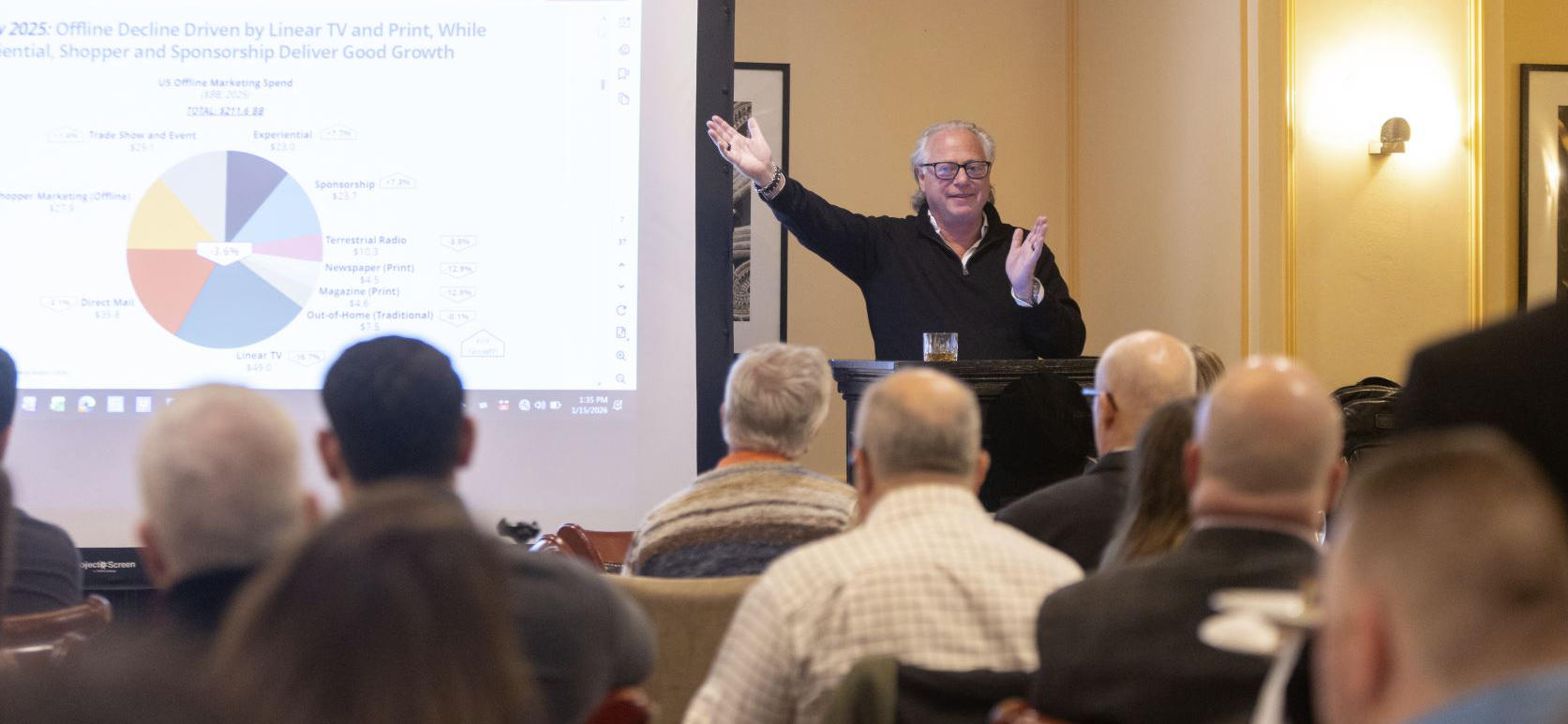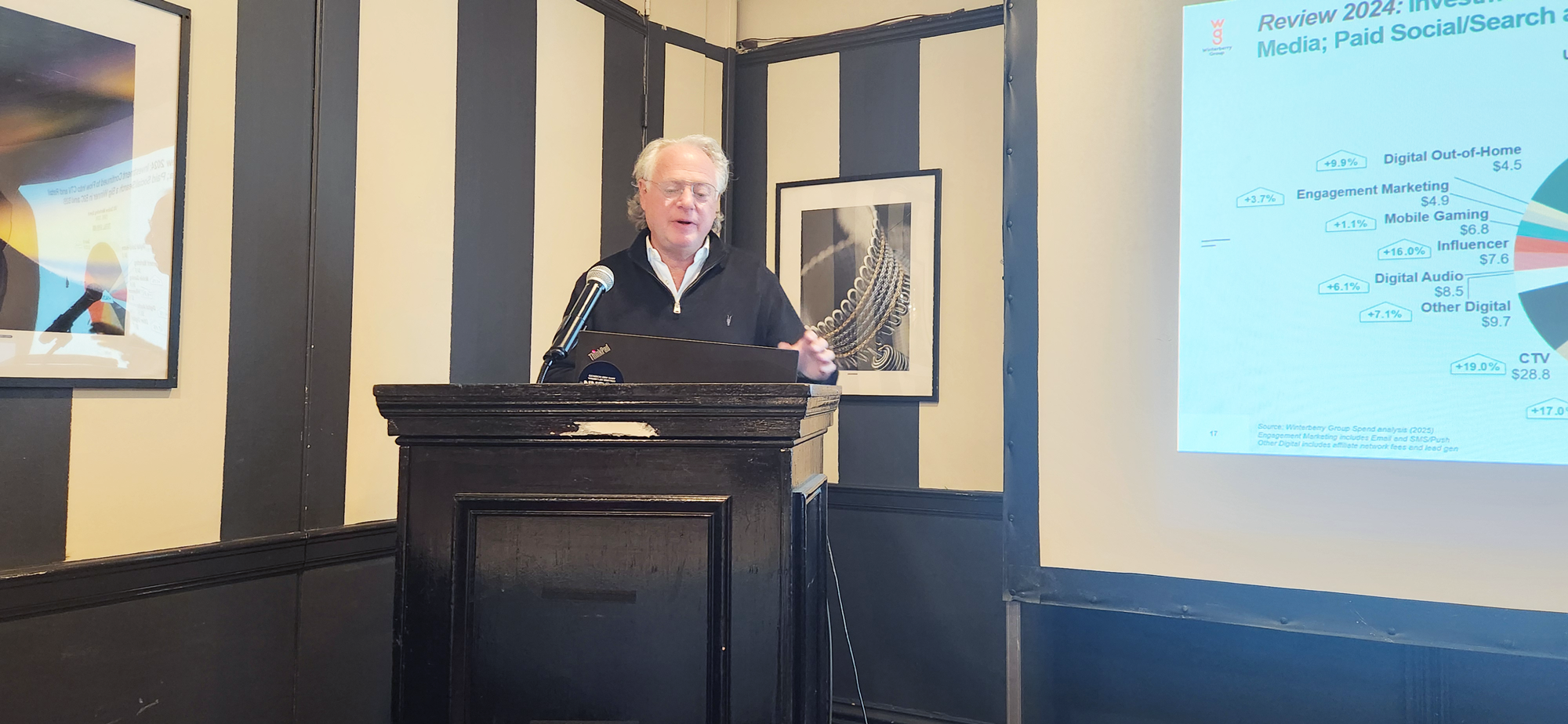
Silver Apples 2021

Each year the DMCNY presents its highly distinguished Silver Apple Awards to select professionals who have spent at least 25 years in marketing and who not only have excelled in their careers, but also have generously contributed their talents and time to the marketing industry. We’ll be introducing you to the 2021 honorees over the next few weeks, in advance of DMCNY’s annual Silver Apples gala on November 4, 2021, at Edison Ballroom in New York.
Meet…
Trish Wheaton
Principal & Founder
LEANING OUT™

Trish Wheaton has been a risk-taker and trailblazer throughout her storied marketing career. She led two of Wunderman’s largest offices, Canada and the UK, and was the agency’s first-ever global chief marketing officer. In all those roles she was instrumental in fueling the organization’s exponential new business growth. During her tenure as global CMO, Wunderman became a $1 billion company and the world’s largest digital network. These are just a few of the accomplishments that led Direct Marketing News to induct Wheaton into its Marketing Hall of Femme.
As founder of INSPIRE, an integrated sustainability practice from WPP’s Young & Rubicam Group, she helped companies think strategically about using their social impact efforts to attract, engage, and retain socially conscious consumers. She was chair of the board of directors of the Canadian Marketing Association and has served on the Cannes Lions jury.
Today, Wheaton is inspiring late-career clients to find their next purposeful challenge, whether that’s serving on a board, moving to a nonprofit, launching a business, or another fulfilling pursuit.
What initially drew you to marketing?
Marketing came hunting for me. I started out in book publishing at Yale University Press and like most people who go into book publishing, I wanted to become an editor. Turns out I was too gregarious to spend my time copy editing, which is, of course, what you have to do for years before you ever get into acquisition.
So, it was ‘suggested’ I move to the marketing department. Once there, I filled in for the direct mail manager on maternity leave—and that was it. Direct marketing appealed to both my right brain and left brain; it was quantitative and creative.
Early on, for example, I wanted to change the color of the Yale remainders catalog, which had always been blue and white. I tested it against an orange cover, which was an absolute apostasy because that was Princeton’s color. But the orange cover significantly outperformed the blue and white. Right then, I was hooked.
And that’s how marketing, and in particular, direct marketing, found me.
Tell us about a career highlight or turning point.
I left publishing and joined Wunderman. I’d never heard of the agency; I’d never heard of Lester Wunderman. But I did recognize his wife, Suzanne Cott, who was a newscaster in New York. I thought, well, if he’s married to Sue Cott, he must be a pretty good guy. And that became the beginning of a 30-plus-year career.
The highlights I would cite from those decades were leading the Canadian office and then the London office; leading people who were all dedicated to the practice of marketing.
What excites you most about marketing right now?
It’s a hugely exciting time because marketing has never played a greater role than it does right now. If you look at all the different channels, from social media to traditional brand marketing, plus all the opportunities to use data, there is so much going on that makes marketing more important than ever.
That said, in some ways, marketing’s dynamics are less understood than ever; specifically, how everything comes together. This, certainly, is one of the challenges, but also, for those marketers who do have an understanding of the interplay, it’s one of the opportunities.
Share a treasured customer story.
When you’re in the agency business, you get to work for so many great clients, and their customers. One of the highlights was back in the early 2000s, working with Kraft to launch their CRM program. Here is this rock-solid consumer packaged goods marketer moving into the world of CRM—through its Food & Family magazine—and then the data that accompanied it. Seeing how their consumers responded was fascinating.
It was hard to set the metrics early on because you’re in such new territory, but our goals were built around three consumer problems we were solving: time constraints, idea constraints—limitations on ideas for what to fix for dinner—and skills competence in terms of what people would be able to cook. We put forward recipes that made life easy by meeting those needs. And what we saw were spikes in usage and purchase of many of the Kraft products that went into these recipes.
We conducted match-market testing in areas where the program was running, versus markets where it wasn’t running, which showed a dramatic increase in the sale of featured products in the magazine. That was a real validation of the program.
It was an absolutely transformative time for many organizations. And now, of course, you see a lot of programs that are similar to this. But that was one of the original CPG CRM programs.
Share a favorite data story.
We were launching a premium pet food across North America. The challenge was identifying who would buy this premium pet food, which was substantially more expensive than the usual kibble that you’d find in the grocery store. So, we were looking for a golden question to put in our data capture that would find these consumers; we were capturing data through the usual channels, such as customer surveys.
Eventually, we landed on the question: ‘Do you celebrate your pet’s birthday?’ This was before dogs of Instagram or everybody celebrating their pet’s birthday. At that time, it was very unusual. We found our target market in the answer to that question.
We were able to reach those people with this premium pet food and they bought it—because it was much healthier than standard brands—which accounted for the higher price.
What’s your go-to marketing metric?
It’s one that’s not always available, but it’s a key metric, and that’s lifetime value. Often an initial metric—clicks or sales, for example—doesn’t tell the whole story. Lifetime value does. It can be a real beast to measure, but if you’re able to capture it or measure it, lifetime value answers so many questions of accountability. So, it’s my personal favorite. And that goes way, way back to working on businesses like Time-Life Books, and some of the other classic direct marketing clients who understood that long ago. I think a lot of businesses are trying to capture and measure LTV now.
What’s one piece of advice for someone just starting out in marketing?
One thing I would especially encourage is to understand and become as knowledgeable as you can about all the various marketing channels—qualitative, quantitative, social brand, you name it. We’re beyond the time where you can afford to understand and play only in one channel. Today, you have to understand the synergy between channels and the impact one has on the other: What is the role of brand on all of this? What is the role of your more data-driven channels? And so on.
Very few people have that knowledge right now, but the ones who do are the ones who become wildly successful.
What was the best piece of business advice you’ve received?
Stay as close to the P&L as possible. And if you can own the P&L, that’s even better because, over the course of your career, that’s your proof point. It’s advice I took to heart and would give to anyone else, as well.
Do you have either a personal motto or an inspiring quote that guides you?
Be grateful to the past, but open to the future.
Be grateful for all the opportunities that have come your way, and all the learning experiences and challenges. View the past with that lens of gratitude, but also be open to the future and the possibilities that are there—at whatever age and stage of career. You have to keep learning and stay open to the possibilities.
What’s something surprising about you?
I’m a Minnesota farm girl, and my first jobs were driving grain trucks during harvest—and I was a really good grain truck driver! But most people who know me—particularly, those who know me during my time in New York, London, and Toronto—that’s not something they probably associate with me.
What are a few of your interests outside work?
I golf as often and as many months of the year as I can; it’s something my husband and I really enjoy doing together. I’m also an avid skier. I love gardening. I have a wealth of things I love to do. It’s always a matter of finding time for them. You really do need to make the time—and I always have, throughout my career.
What’s your hidden skill?
My superpower is the ability to see patterns emerging, to act on them, and to not get seduced by success. Success can be very, very seductive, but it prevents you from changing and taking risks.
I’ve always been a little bit uncomfortable when things get too comfortable. That’s when I know it’s time to push the envelope, and that has been fundamental to my success. Whether it’s been leading offices across geographies, or launching the INSPIRE sustainability practice, or launching LEANING OUT, it’s that ability to say, “OK, what’s next? What am I seeing today, and what is the future going to need?”

About the Author
Ginger Conlon, editorial advisor at DMCNY’s MKTGinsight, catalyzes change in marketing organizations. Ginger is editor-in-chief of MediaVillage and president of DMCNY. She is a frequent speaker on marketing and customer experience, and serves in advisory or leadership roles for several industry organizations. Ginger was honored with a Silver Apple lifetime achievement award for her contributions to the marketing industry.
Find her at @customeralchemy and on LinkedIn








